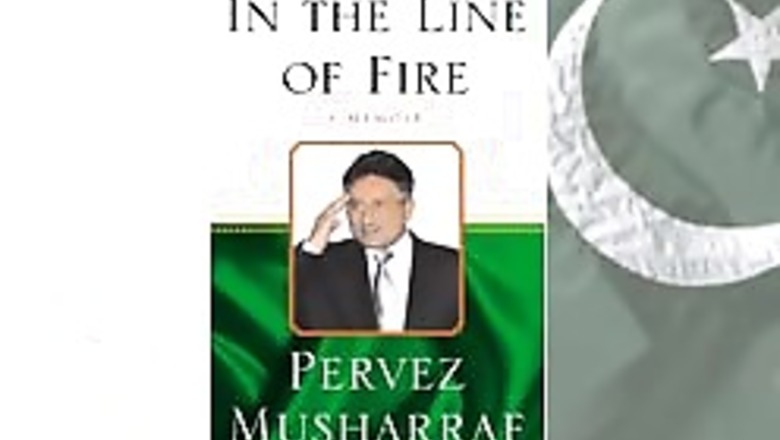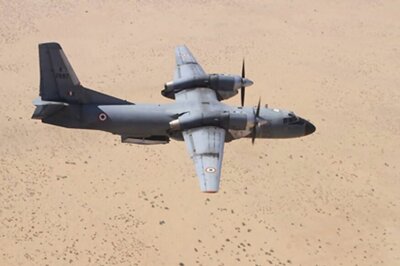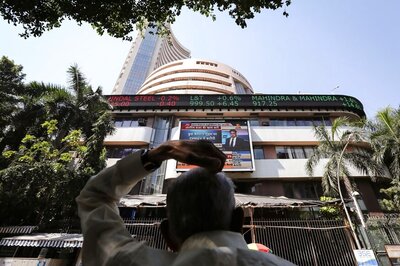
views
New Delhi: Is General Pervez Musharraf finally ready to tell his side of the Kargil story? Will he give his version of the October 1999 coup, in which he unseated Nawaz Sharif?
Will he also reveal some inside details of the Agra Summit with Indian prime minister Atal Behari Vajpayee, which had ended in a fiasco? Or, going a bit further, will he tell the world all that he knows about al-Qaeda and Osama bin Laden?
As Pakistani President General Pervez Musharraf gets ready to release his autobiography In Line of Fire: A Memoir, political pundits, security experts, columnists and reporters can’t wait to get their hands of an advance copy.
The memoir will hit the stands on September 25 and will be formally released by UN Secretary-General Kofi Annan.
The book, purportedly ghost-written by Musharraf's long-time friend and Pakistani columnist Humayun Gohar, is spread over 368 pages. It is priced at $27 (Rs 1,200).
The book has been publicised about a detailed life story of the President with a first-hand account of the important events that shaped his life.
Originally written in English, the book is also likely to be accompanied by a translation in Urdu, a language through which the general plans to reach the masses.
If reaching the masses is one of the objectives of the President behind his writing the book, it is highly unlikely that he will dwell on controversial issues like Kargil at a time when he is seeking re-election to the presidency next year amid myriad controversies.
The Opposition in Pakistan has been up in arms against him on the demand that he must leave one of the two posts he is holding - as Army Chief and the President of Pakistan.
Under such circumstances, it is more likely that General Musharraf will only try to give an account of his life and work, and a positive view at that, leaving controversial issues untouched.
In any case, there has not been a good precedent of a Pakistani president writing his autobiography. The only time it happened was when Sandhurst-trained Field Marshal Mohammed Ayub Khan's Friends, Not Masters was published in 1967.
The book was ghost-written by Altaf Gauhar, a bureaucrat, who was once Pakistan's information secretary and later became Khan's confidante.
The book was an instant hit and ended up being a bestseller of that era. But the same year, Khan was ousted after being in power for a decade.
Khan's publisher was London-based Oxford University Press. General Musharraf has, however, chosen another British publisher, Simon and Schuster.
Musharraf has reportedly been paid a $1 million by his publishers for the book.
The General and his publishers have so far kept the content of the book a well-guarded secret. However, it is beyond doubt that Musharraf's autobiography will contain an overdose of India in it - long nostalgic chapters on his childhood in old Delhi's Neherwali Gali, his several interactions with Indian governments, Vajpayee in particular, and maybe some details of the Kargil war.
India may also figure prominently in the context of General Musharraf's gingerly welcome to Vajpayee at Lahore - Musharraf had denied that he had refused to salute the Indian PM - some inside details of the Agra Summit, which ended in a fiasco, and also in the context of his Kashmir stand.
It is, in fact, also being speculated that Gen Musharraf will try and present a tentative roadmap for a Kashmir solution - conscious as he is that he would be addressing a global audience with his book.
This apart, the world will also expect to get Musharraf's own version of what made him do a U-turn in Afghanistan after 9/11, ditching the Taliban regime and joining the US-led global war on terror.
The book is also likely to contain a message for the Muslims, both at home and abroad - balancing it with a call to the West on what he has done to make Pakistan a moderate Muslim nation and some insights into Musharraf's domestic politics.
















Comments
0 comment